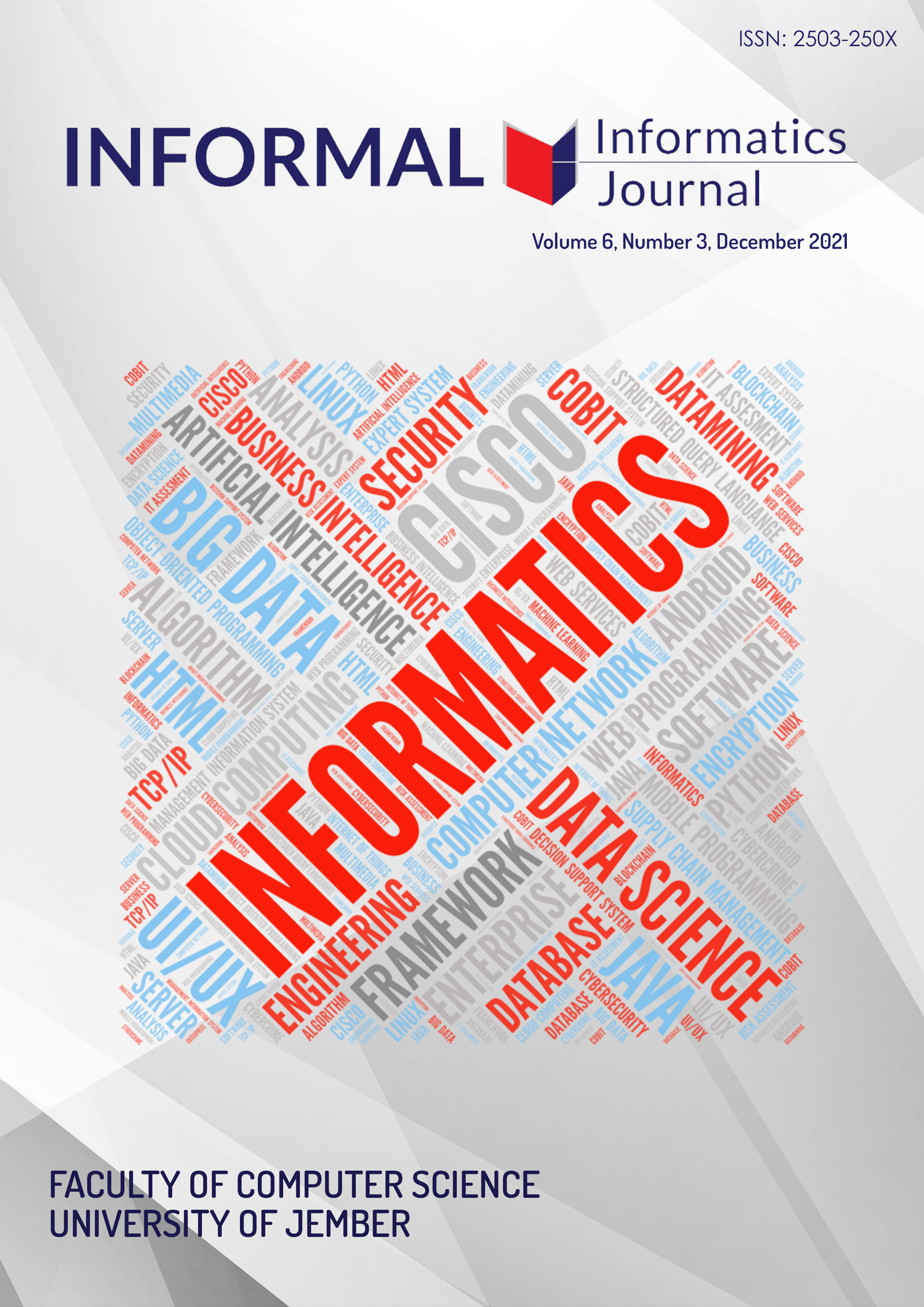Optimasi K-Klasterisasi Ketahanan Pangan Kabupaten Jember Menggunakan Metode Elbow
DOI:
https://doi.org/10.19184/isj.v6i3.28363Abstract
Clustering is a process of grouping data based on similarities or similarities with other members in a group. Food security is the condition of a country to provide food for individuals, which does not conflict with beliefs, religion and culture and leads a healthy, active and productive life. Food instability and food insecurity can be caused by many factors, one of which is natural disasters. In 2020, Jember Regency experienced 121 natural disasters. Determination of the optimal K value is done to get the right number of group divisions from the clustering process, in this case using the elbow method. The data used in the clustering process are sub-districts in Jember Regency using transient attributes or natural disaster events. Based on the results of sub-district data grouping from the number of clusters k=1 to k=10, the optimal k value was found at the value of k = 4 with the SSE (Sum of Square Error) value = 24,809.



